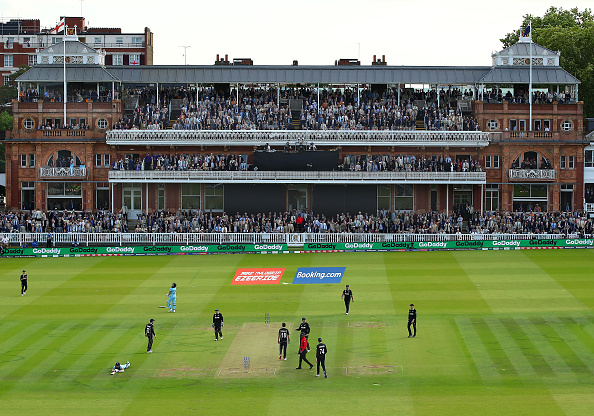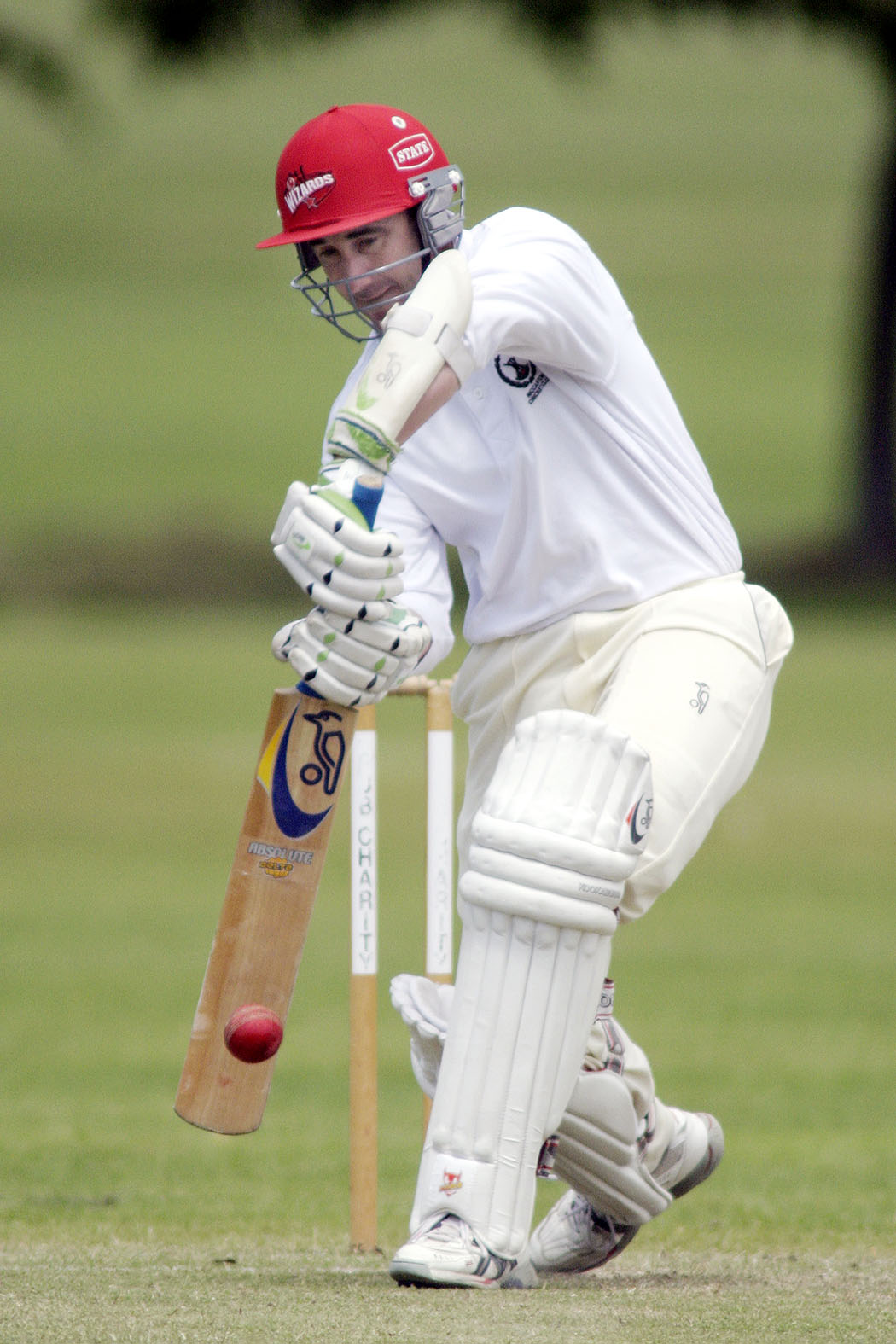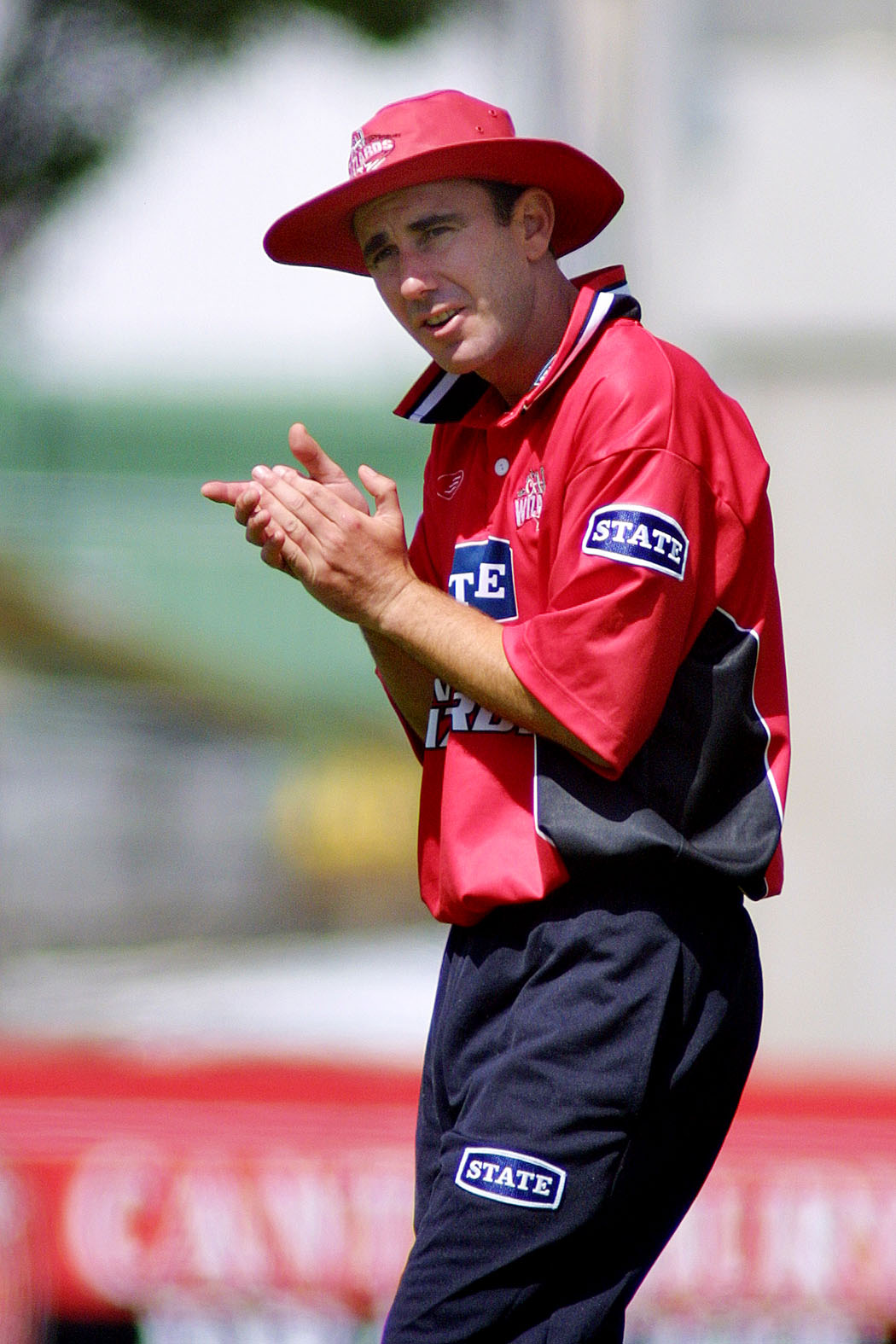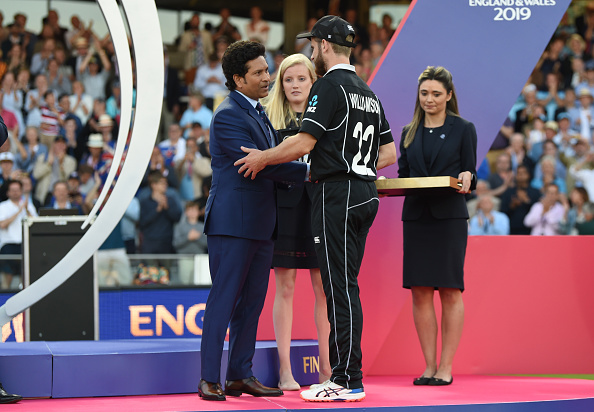
When you answered The Star’s phone call last Friday you were watching the Kings wrap up a six-wicket Super Smash win over the Knights. It’s no surprise we caught you watching cricket in your down time is it?
I watch it just about every day. It’s a never-ending job really. There’s always something going on.
Are you ever able to switch off and do focus elsewhere?
I like to play golf. I haven’t got a home course, I’m not a member, I just pay green fees and play anywhere. I’m on a 12 handicap.
Do you do anything else to decompress? You used to do a bit of ‘gardening’ at the crease, are you busy in your actual garden?
My wife (Rachel) is the gardener. I do the lawns, edges … things like that. We’ve got a property that needs a bit of caring for. It’s always good to help out – they’re the things you do miss when you’re away because it helps you get away from the game.
Is your lawn immaculate, up to backyard cricket standard?
It’s long enough for a wicket. I’ve got a couple of kids who are into their cricket so it certainly does get used with a bat and ball.
Your daughter Libby is a handy cricketer isn’t she?
She’s in the Canterbury under-19 women’s side. It’s her second year at that sort of representative level. She bowls a little bit of off spin. My boy Alex is 15, he’s getting into his cricket at Christ’s College.
Do you coach the kids, or leave it to their respective coaches?
I help them out when I can but I think it’s good for them to hear different voices as well.
Take us back to your first experiences with the game. I guess it all started with your dad David, who played 80 first class games for Canterbury?
As early as I can remember I was down at Lancaster Park watching Canterbury, or at Hagley with the Riccarton club. We lived on an orchard at the end of Marshland Rd. I remember playing with my (younger) brother (Wayne). There was always a bat and a ball or a rugby ball in the hands. Or we’d throw apples at tree stumps.
Is the orchard still there?
It’s right down the Chaneys Corner end. I’m not sure it’s running as an orchard anymore. We lived there until I was 17-18. That was mum and dad’s job. Dad had to supplement the income at times by going up to the freezing works (at Kaiapoi). It was a tough gig. It’s easy to get wiped out by hail, that happened a few years with us. That’s one of the reasons mum and dad decided to get out of it.
I take it dad was the driving force in getting the boys playing cricket . . . ?
We weren’t pushed in any direction but I remember as a kid all I wanted to do was do what dad did, playing for Canterbury at cricket. I think it was what we were born to do really … get involved with sports. My sister (Andrea) represented New Zealand at trampolining. It was always in the blood.
When did you start getting on the front foot as a cricketer?
I think I made some inroads right the way through from late primary (school). I played a lot of cricket and rugby at Shirley Boys’ High School. The cricket started to take off a little bit more out of secondary school. I got a scholarship over to Lord’s for six months when I was 18 (in 1990). That was pretty influential in my cricket career.
How did the Lord’s opportunity materialise?
For a long time New Zealand Cricket sent a player over there. The year I went I was lucky because there were two of us. Matthew Hart (future New Zealand spinner was the other). It was a real eye-opener as a kid. You work at Lord’s . . . you train there. It was an amazing experience living in the middle of London. You played for the MCC Young Cricketers. I also played a bit for South Hampstead.

Usually you have duties those days. You’re either selling scorecards, sometimes you’d clean the windows in the Long Room, sometimes you were lucky enough to be on covers so you’d get out in the middle. New Zealand toured that year. It was the first series since Sir Richard Hadlee was knighted. I remember looking up at the board and it has ‘Sir Richard Hadlee’ up there. That was pretty special. I’d watched him at Lancaster Park for years and I played the occasional club game against him in my early years when he was sort of finishing.
Did you get a bat at Lord’s?
I was lucky enough to play a three-day game against Scotland. I got a few wickets and a few runs as well.
Who influenced your career along the way, other than dad?
I was pretty lucky in my Canterbury career to have a number of coaches that were pretty influential. Very early on there was (future Black Caps coach) David Trist. I started in the Canterbury squad when he was coaching. Then there was Denis Aberhart, Garry McDonald and Michael Sharpe. They all brought very different ways of doing things.
You started out as a leg spinner, you fancied yourself as an all-rounder, and then batting took precedence didn’t it?
There were a number of leg spinners on the staff at Lord’s when I was there and I wasn’t getting a lot of bowling. Truth be known I probably wasn’t good enough at it so I started focusing more on batting.

It was against Auckland at Dudley Park. I didn’t do anything startling. I think I got three and 15. We were pretty blessed at that time in Canterbury with the likes of Fleming, Astle and Harris. Craig McMillan came along a year or two after that as well. There were plenty of guys in the side that had long, long careers with New Zealand.
After toiling for several summers at provincial level, you finally earned a call-up for the Black Caps in 1999. Did you worry test cricket might have passed you by?
I’d played for New Zealand A against South Africa at Lincoln Green and I got 70-odd I think. There was an injury or two in the New Zealand team and I managed to get the call up. It was certainly a surprise. I don’t know if I ever really had the belief in myself to play international cricket at the time. Getting the opportunity lit the spark for me.
You debuted at your beloved Lancaster Park, averaged 35.75 from eight test knocks, made two half-centuries and never got dismissed for single figures. You must be satisfied with that?
I was just very, very lucky to get that opportunity. When I played there were injuries to other guys. I never really ever felt I’d cemented a spot in the team.
Was it frustrating your test experience ended against the West Indies at the Basin Reserve, nine months after your start against South Africa? You opened in Wellington and your dismissal was the catalyst for Mathew Sinclair’s epic 214 at No 3 on debut. One test career launched the other was at an end . . .
It was OK, it was five tests more than I ever expected.
How would you describe yourself as a batsman?
Dour. I played the cut shot and worked it off my legs. That was about it. I played a survivalistic type of game. That was just the way I did it. I had to fight hard for runs.
Is there anyone in the test team now that you’d put in the same bracket?
No. No way. I’d hate to do that to those guys, they’re much, much better players than I ever was.

As soon as I came back from Lord’s I started working at Canterbury Cricket. David Trist and Nicky Turner were the two coaches that got me involved. I used to go round schools, I also did some coaching in the community and a few rep teams. That’s where I really realised I quite enjoyed it. Around 2004, Martin Snedden and the late John Reid asked me to redesign New Zealand Cricket’s level three course for coaches. I managed to mix my playing career with doing that for a couple of years before I finished up.
Do you ever look back and think I should have done a nine to five job and had weekends free to watch sport without the stress?
It’s interesting because when I was playing I didn’t have a job in the winter. I used to find myself labouring, it was a good way to keep fit. Cricket has been such a big part of my life it’s very hard to imagine doing something else though it will come to an end at some stage. And being in the job I am now, it could happen a lot quicker than what you expect. I guess I’ve found a niche. I enjoy working with people and working in sport. Mentally, it’s a very challenging sport – I get drawn to that psychological side of the game.
After coaching the White Ferns you progressed to the Black Caps as Mike Hesson’s successor in 2018. At that level coaching must be more mental than technical because these guys have got the basics covered right?
The technique they’ve got has got them there. You sometimes tinker with it slightly, but it’s only tinkering around the edges.

No, Kane’s his own best coach. But he still enjoys having coaching conversations and cricket conversations. The New Zealand guys have an openness to want to keep getting better. Our job is to help facilitate how they can work things out in the middle. A lot of what we talk about is how they communicate with each other out there. Once they’re out there they’re the ones that have to make the decisions.
You’ve reminisced about some good times at Lord’s, now there’s that elephant in the Long Room, that World Cup final on July 14 (GMT) in 2019 . . .
I’ve never sat down and watched it (on replay). I don’t have to, I’ve got a lot of memories of it already and to be honest most of them are very, very positive ones. It was an amazing day, it was very special to be there. I guess to lose the way we did is history now. I try not to think about it too much because I know I can’t change it. I don’t mind talking about it. I certainly don’t try and have it eviscerated from my memory. You sort of look back and it’ll be pretty defining when you think about life experience … to be part of what I think is the most amazing game of cricket there’s ever been.
While that outcome was agonising because of its closeness, the tour of Australia in 2019-20 must have hurt in a different way because it was a no contest. Were fans who flooded over the Tasman for the Boxing Day test too optimistic?
When you want to beat Australia in Australia you need a little bit of stuff to go your way. Unfortunately we had a few injuries through that series and some illnesses in the last test match (at the SCG). But the bottom line is we weren’t good enough.
After that chastening experience India arrived, swept the T20 format 5-0, before you took a pre-planned break that attracted scorn from some commentators, media, fans and keyboard warriors ...
It (the adverse reaction) was only because people are passionate about the team. We’d come off five losses to India, two had gone to a super over. We could have easily won that series 4-1 and then people would have said nothing around it. It was a pre-planned thing between me and my employers and it could happen again. We have to keep planning otherwise players and coaches burn out too quickly.
Ultimately that mid-tour break wasn’t really a chance to rest up was it?
I don’t think I really had a break at all, the media made it so I couldn’t. It was probably the least enjoyable experience of my life, that week.
And here we are, 12 months on and New Zealand was rated the top-ranked test cricket nation for the first time this summer. No one is complaining now are they?
(Laughs) Getting to the No 1 ranking is very special for the team because it shows that over a long period of time the team has been consistent. That’s what we talk about a lot, how we can be consistent day in and day out and how to stay in the fight for long periods of time. We’ve done that really, really well.
What has been the most satisfying aspect of your tenure, which now runs through to the end of the 2023 World Cup in India?
I think, for me, any team is pretty hard to beat when you’re at home, so for me the away (test) wins mean a lot. Finding a way to compete in foreign territory is something that’s pretty cool. Pakistan in the UAE, Sri Lanka in Sri Lanka . . .
Which country do you enjoy touring the most?
Gee that’s hard. They’re all unique experiences. I don’t really consider any one over the other.
How about a favourite non-cricketing country?
I had a couple of stints playing over in Europe (Netherlands) so we got to see parts of Germany, France and Belgium. There’s so much history so when you get the chance to travel around there it’s always pretty nice.












